Colder than COLD-VID: Reflections by 4 Isolating Next Stage Alumni on Their Time with the Festival
The Next Stage Theatre Festival is a curated, boutique theatre festival produced every year in January by the Toronto Fringe. Every year, the Fringe receives applications from artists with a past history at the Fringe who are ready to take their projects to the “next stage.” Next Stage takes place at the Factory Theatre, with three performance venues: the 200-seat Mainspace, the 100-seat blackbox style Studio and the 38-seat Antechamber, which was last used in 2019.
While the Fringe is a beautiful crapshoot, Next Stage is juried. The limited number of shows ensures a sense of quality. The ticket prices are slightly higher. Companies get longer tech times. The festival’s always been an exciting chance to see scrappy indie theatre artists experiment, dream and rise to the challenge of the curated festival–to up their game so to speak.

Silk Bath cast and crew, Next Stage Festival 2017.
I attribute my career to Next Stage. Our 2017 production of Silk Bath sold out its entire run at the festival and was picked up by Soulpepper for a 2018 run. Next Stage allowed us to build an audience beyond the Fringe and showcase our capabilities to artistic leaders in the city. Every gig I’ve booked or project I’ve been invited to participate in can be drawn back to that production in 2017.
Next Stage isn’t happening this year.
Like most arts festivals, it’s been halted by COVID.
In this peculiar time of rest, many theatres have been re-evaluating their practises, seeing who they’ve left out of the programming and how they may better serve their communities.

Velvet Wells. Photo by Tyra Sweet
One such initiative was a private Zoom call hosted by the Toronto Fringe and moderated by Velvet Wells. In the call, four Next Stage alumni reflected on their experiences in the festival, the space it held in their careers, and how they envision the festival could improve or grow. I was invited to observe and document the call.
The participating artists were Alia Rasul (ensemble member/performer/co-creator, Tita Jokes, NSTF 2020; producer, Literally Titanium NSTF 2020); Nigel Shawn Williams (director, Tomasso’s Party NSTF 2012; performer, Agamemnon NSTF 2016); Ashley Perez (choreographer/ensemble member, Jack Your Body NSTF 2014); and Izad Etemadi (performer/creator, Leila Live! NSTF 2018).
CATCHING UP: The Present

Ashley Perez. Photo by Sam So.
The conversation began with a check in on how the artists were doing, specifically how they were coping 8 months into a pandemic.
While the majority of the group are happy to have had a break from the arts, Ashley Perez of Mix Mix Dance Collective got straight to work. As a choreographer and dancer, Perez took this moment to adapt to a new digital frontier, something she doesn’t think she could have done ten years prior.
“One of things I was [originally] scared to do as a dancer was get on the technology bus. I was really old school. Dance needs a studio, the barre, the people… But I never was really a part of that dance world. I taught and learned in alleys, lunchrooms. The access to space was very limiting to me.”
Before COVID, it was already becoming too expensive to rent studios to teach classes. So, Perez started doing an online stream.
“People sent me money. I made more money than I do teaching in a studio. I really got on the Zoom. I really got it.”
When the weather got nicer, Perez led a class for 8 weeks outside. She cut it because of the fear of a second wave.
“I’m a little bit worried for my dance peers. Gathering is such a big part of what we do… two weeks ago everyone just messaged each other: “Let’s dance outside together, let’s do shows outside!” Now we have to negotiate with a second wave, which forces us to invest back in the online spaces. So how do we make our work good in the Zoom box?”

Nigel Shawn Williams
For Nigel Shawn Williams, it’s about being aware of the medium you’re in.
Aside from dramaturging some play readings on Zoom, Nigel Shawn Williams hasn’t created anything online yet. This will change, however, as he embarks on a project with Brian Quirt and Nightswimming–a project that will be filmed live and disseminated.
Shawn Williams has, however, been watching his fair share of online theatre content. For research, mostly. “I just think I needed to gnaw its skull a bit to find out what the fuck it was before I jumped into it.”
The results, he feels, are a mixed bag, especially because he’s been unable to identify if what he’s watching is actually theatre or performance.
“I’m an artist that loves working in theatre because of the collaboration. I love the immediacy between storytelling and sharing that with an audience in the room. And that’s very special. There’s a hiccup. There’s a fart. It’s live.”
What Williams has found effective are performances that are aware that they are online, and that can make up for the lack of an in-person audience by still creating the theatre’s “sense of immediacy in person with an audience, a community.”
“When we pretend the audience isn’t there, the stream isn’t there, that’s when it isn’t successful.”

Alia Rasul
Alia’s Rasul’s company Tita Collective is fighting the isolation and lack of immediacy of online programming on two fronts.
During the pandemic, Tita Collective was able to create online programming where they connected with Filipin artists from British Columbia, the UK, and the United States. The physical closing of boundaries, Rasul says, allowed collaborations to occur that would not have been possible. She points out that people want connection now that borders are closed.
That said, the artists of Tita Collective still realized that the only way for them to tangibly create their sketches was to work together in person. Having been programmed into FemFest in Winnipeg in late September, the idea of a “comedy cottage” was born. Tita Collective will bubble together (Rasul spent the first half of the Zoom call in line for a COVID test) and create and perform Tita Jokes while streaming live to Winnipeg from their comedy cottage.
“The way we proposed it was arguing that we need to be together as a collective to vibe together. Which is very anti-pandemic. But we’re trying to be responsible with the COVID procedures. Which is why we’re all bubbling. Which is why we’re all getting tested.”
Alia also acknowledges that everything going online has made things more accessible to disabled artists.
“Through my work with my collaborator Ophira Calof I’ve learned to frame my work around people having access. These Zoom shows have made our work more accessible to people who couldn’t get into theatres in the first place.”
Rasul highlights the potential of Zoom, especially its chat feature. Audiences can engage and have conversations about the work as it happens live.

Izad Etemadi
For Izad Etemadi, the pandemic is a chance for him to not create online. Despite having a strong social media presence through YouTube and Instagram videos for his largely queer Iranian followers, Etemadi sees this as a “chance to have a break” from digital presentation and instead work privately on projects.
“I have found a new core collaborator. It’s been really exciting to see how our brains connect. We’ve always been good friends, but we’ve never connected in this way. We’ve been producing things so quickly that I would’ve never made on my own. That’s been very exciting. I’m discovering new parts of my voice.”
“This pandemic has made me less present online and made me NOT do anything online.”
NEXT STAGE: The Past
Having served on both the festival jury and as an artist, Shawn Williams has always gravitated toward Next Stage compared to the Toronto Fringe because of its small size of 10-15 shows versus the Fringe’s 150+.
“It’s compact. What I loved about it most was supporting everyone who was there and getting to know them. One of the most positive things that came from Next Stage was meeting artists I’ve never known before, writers, dancers, actors, and just audience members.”
Williams describes the beautifully humbling experience of lining up with audiences to see shows in the heated beer tent.
“We’re all in the line together. We’re all in the beer tent together because it’s cold. I’m up next. This is us. There’s a facade in art, but it never felt like there was any notion of ego when I was at Next Stage.”
For Etemadi, one of the largest benefits to doing Next Stage was gathering new audiences for his work. Etemadi’s Leila character is a Fringe star on the touring circuit, selling out solo shows in Winnipeg, Hamilton, and Vancouver. However, Etemadi has rarely performed Leila in Toronto, and Next Stage allowed local audiences, friends, and strangers to finally see his critically acclaimed character without having to travel to the places he tours.
Etemadi used his Next Stage show to experiment with the form of his solo work. Having chosen the antechamber as his venue, which is usually used as a bar space during Factory Theatre’s main season, Etemadi thrived in the intimate space and limited tech by eschewing narrative for a more character-driven experience.
“Do I need a narrative? Or can I entertain an audience for 30 minutes just with the idea that I was in a room with people? Next Stage was very supportive. I started in the line with the audience. I crashed my lineup in the tent as though I was locked out. I incorporated the other show next to me. That festival was a turning point in what I wanted to say and how I wanted to do it. I loved it.”

Members of the Tita Collective, Next Stage Festival 2020. Photo by Colleen Yates.
For Rasul and the Tita Collective, Next Stage was a chance for the fledgling company to prove that their Fringe show, Tita Jokes, wasn’t just a buzzy fringe hit, but actually had enough quality material to thrive in a curated winter setting.
Tita Collective were the winners of the lottery, a specialized Fringe lottery where 3 productions of colour are allowed free entry into the Toronto Fringe with a bursary and mentor of their choice. Upon being given the 200 seat Tarragon Mainspace as their venue for the 2019 Toronto Fringe, they chose a publicist as their mentor. The publicist advised them to do one thing: sell and create buzz.
“More people need to learn how integral this is. Once you sell out your first two shows and get on a NOW list, the show will sell out… There’s a weird relationship with NOW Magazine and these festivals that kind of makes it difficult to be a safe space to develop work. It’s pretty cut-throat.”
At Fringe, Tita Collective lucked out, having a well-reviewed show with a sold out run that crafting a Fringe is Filipin narrative with two other hit Filipin shows. That being said, Rasul identified the double-edged sword of having buzz. Often a show’s selling power has nothing to do with the actual quality of the show. Rasul mentions a strategy their publicist mentor gave them:
“If you’re 15 people out of selling out, buy those tickets [yourself]. That sold out sign is key. We [were] lucky to have a publicist… Did we develop a community? Yes. We had a publicist who sold us a cultural moment.”
While Rasul was confident that they had built a large Filipin community at the Fringe, she expressed doubts whether it was the strong publicity or the content of the show itself that brought people out.
“Am I a good artist or am I just buzzy? Am I valid? Am I just the fresh thing that’s happening right now?”
In this light, Rasul notes: “Next Stage felt very validating. People heard about the show and still came out in winter. Factory Mainspace is a pretty big space. Filling that felt… ooomph! The highlight is that people—not just Filipinos—heard about our show, came out, and were curious to talk about it.”

Factory Theatre Mainspace, Next Stage Festival 2019. Photo by Paula Sanderson.
For Perez, her fondest memories of the festival were feeling like she had a job to go to every night, alongside the winter camaraderie that formed among the cast of Jack Your Body.
“We did 9 shows, unheard of for a dance run! We had a good ass time. We were making money. We were feeling good… I remember the bonding after the show was amazing. We have a ritual of going for dinner after. Jack your Body was hard! Dancing in the middle of winter, then going in [to perform], that was challenging. But just knowing that we’d hang out after was great.”
However, not every experience at the festival was positive.
For Rasul, having acted as the producer of two shows in the 2020 Next Stage Festival, Tita Jokes and Literally Titanium, she was surprised to discover that the winter festival depended significantly more on a culture of positive reviews rather than the word of mouth that propelled them to success at the summer Fringe. Given that Next Stage is positioned right after the holidays, there’s a very small window for artists in the festival to fill their houses and are often at the mercy of reviews for audiences to make a value judgment.
In the case of Literally Titanium, a solo show written and performed by Ophira Calof, one negative review early in the run had a drastic impact on their sales.
“The whole point [of the show],” said Rasul “was to play with the process of the show to begin with. Bringing forth accessibility in a different way. Everything we did, we tried to fold in accessibility. We were very thoughtful in how we tried to make it more accessible.”
This included reducing the raised platform on the Factory Studio Theatre stage, paying for ASL interpreters, and audio describers. One of Literally Titanium’s objectives was to “teach people about accessibility in theatre” and create a new audience of able-bodied folks eager to engage with this kind of work in the future.
A two-star review from a major review outlet was a major blow to Titanium’s ticket sales. While the disabled community showed up for Literally Titanium, Rasul noticed that audiences not acquainted with accessibility in theatre did not show up following the review’s publication, reducing the potential impact of the show and hurting their box office.
Rasul was banking on high sales, especially on the opening Saturday and Sunday shows, to pay for the accessibility measures. This was, as she describes, “a major low. The regular Fringe crowd didn’t show up.”
Rasul further questioned the purpose of this review. “If the intention of the show was to build a bridge with the disabled community, what this person’s review did was discourage new audiences from coming. There was an opportunity to teach people about accessibility in theatre… people could miss it because [the reviewer] didn’t agree that it was a cabaret.”
While Rasul’s other show Tita Jokes sold exceptionally well in the Factory Mainspace, a racially insensitive review that occurred midway through the run gave her pause. While perhaps not as well-known an outlet, the reviewer, a white woman, wrote a “really mean review stating that we didn’t know what we were doing because we didn’t explain part of our show.”
Tita Jokes is a show primarily for a Filipin audience, with jokes tailored specifically for that demographic. Rasul and many others (including myself) expressed disgust that the reviewer felt like she was “owed a translation”—a far cry from the Filipin and non-Filipin audiences who laughed together throughout Tita Jokes’ run at the summer Fringe Festival.

Cast of Ga Ting. Photo by Randy Bui.
While Rasul and the Tita Collective received a large amount of support online regarding this review (an open letter Rasul wrote to the reviewer was circulated, resulting in action of some theatre companies to no longer invite this critic to their shows), having a Eurocentric and racially aggressive review be written by someone who was a validated critic with the festival sent a clear message.
Perez, a street dancer who is often reviewed by critics who lack knowledge of her discipline, has become accustomed to directly messaging reviewers when they get facts about the show wrong. “[We] make sure that we review things. When we see a review, we ask that things be changed, or things be added. They’re responsible to us,” she says. “You can’t review this work. You don’t know street dance.” While Perez articulated that she’s thankful Toronto’s dance scene doesn’t depend on reviews for ticket sales, “street dancers know we get the shit end of the review stick.”
While Etemadi only received positive reviews for his 2018 Fringe show, he’s had years of “quite the opposite.” While he acknowledges that it’s very useful to hear feedback about a show not being strong, sometimes the way reviewers “communicate [a show’s failure] to their readers is unnecessary and harmful… to be torn apart and told that you are trash in an article could deter a young artist from ever doing it again.” There’s a distinct difference between criticism and being witty merely to increase readership.
The discussion then evolved into a series of questions revolving around the uses and future theatre criticism in a festival setting and beyond.
Who’s allowed to review your show? What is the cultural competency of a lot of reviewers?
What is the intentionality of reviewing a show? Is it click bait? Is it to sell newspapers? Do they have enough anti-oppression training or empathy to engage with that part of the cultural landscape? If not, why are they reviewing it?
How can the festival protect its artists from harm?
How can we, as artist-producers, generate buzz in situations without a Fringe tent? How can we reduce the power reviewers hold over ticket sales and use our own communities to generate sales if we see them engaged with work that a reviewer does not understand?
THE FUTURE: Next Stages
Despite the review-centric nature of the festival, the entire panel continues to see Next Stage as a greatly positive part of Toronto’s theatre ecosystem.
“Back in 2012, as a Black artist, it was like the only place to see colour,” said Shawn Williams. It was the only place to see queer artists, to see something non-patriarchal, non-Eurocentric, all that shit. I’ve always had this affinity for the Fringe/Next Stage because it cleared the group and offered roosts for artists who didn’t have a voice at other theatres. That needs to be said.”
Etemadi has only praise for the Fringe staff, who supported the experimental nature of his project:
“I felt very supported and protected and safe at Next Stage versus other festivals, where I felt quite the opposite. It was my chance to just try things. Everyone that was on the staff and the volunteers were for the experimentation. It was a rare moment to have some comfort that everything outside of the show itself was a safe space.”
Rasul, while also an optimist for Next Stage’s future, is well aware of how quickly the organization needs to adapt to the needs of its often experimental, boundary-pushing, intersectional creators.
“Because of that platform, they’re going to be confronted with a lot more challenges than the risk-averse institutions are going to have… I see it by way of this conversation, and by way of the composition of their advisory board. I want to reiterate how important that platform is, how important it is to develop a framework. They’re standing on quicksand; things are changing so fast. If you’re doing experimental theatre, you’re going to have to deal with that.”

Audiences at the 2020 Next Stage Theatre Festival. Photo by Colleen Yates.
In terms of greater advice for arts organizations and other curated festivals, Ashley Perez looks to the future—specifically to how festivals could reach out to new demographics without relying solely on the artists themselves to wrangle them.
“As a Black dancer, as a street dancer, I have to always bring my own culture and my own audience. What is the outreach where we can just make our work and the audience is just there? What work can the festivals do so we don’t have to bring in the cultural audiences?”
But ultimately, the final takeaway was that this Zoom call happened under the Fringe’s watch and organization. With such a prolonged suspension of theatre seasons, artistic organizations are becoming increasingly open to hearing public criticism from past collaborators—something that may have not occurred prior to the pandemic. While the fight for transparency is often a challenge that can be filled with empty statements and inaction, the Zoom call closes with a feeling of optimism.
“When you do speak up and challenge the system, it is now listened to and respected, versus “You are difficult.” Us standing up for ourselves and our art shouldn’t be difficult,” said Etemadi.
As Shawn Williams puts it, “A dawn of decency is coming back.”
The Toronto Fringe are reaching out to community members for feedback on how to move forward with the 2021 Next Stage Festival. Click here to fill out a short survey and be entered into a merch prize draw.

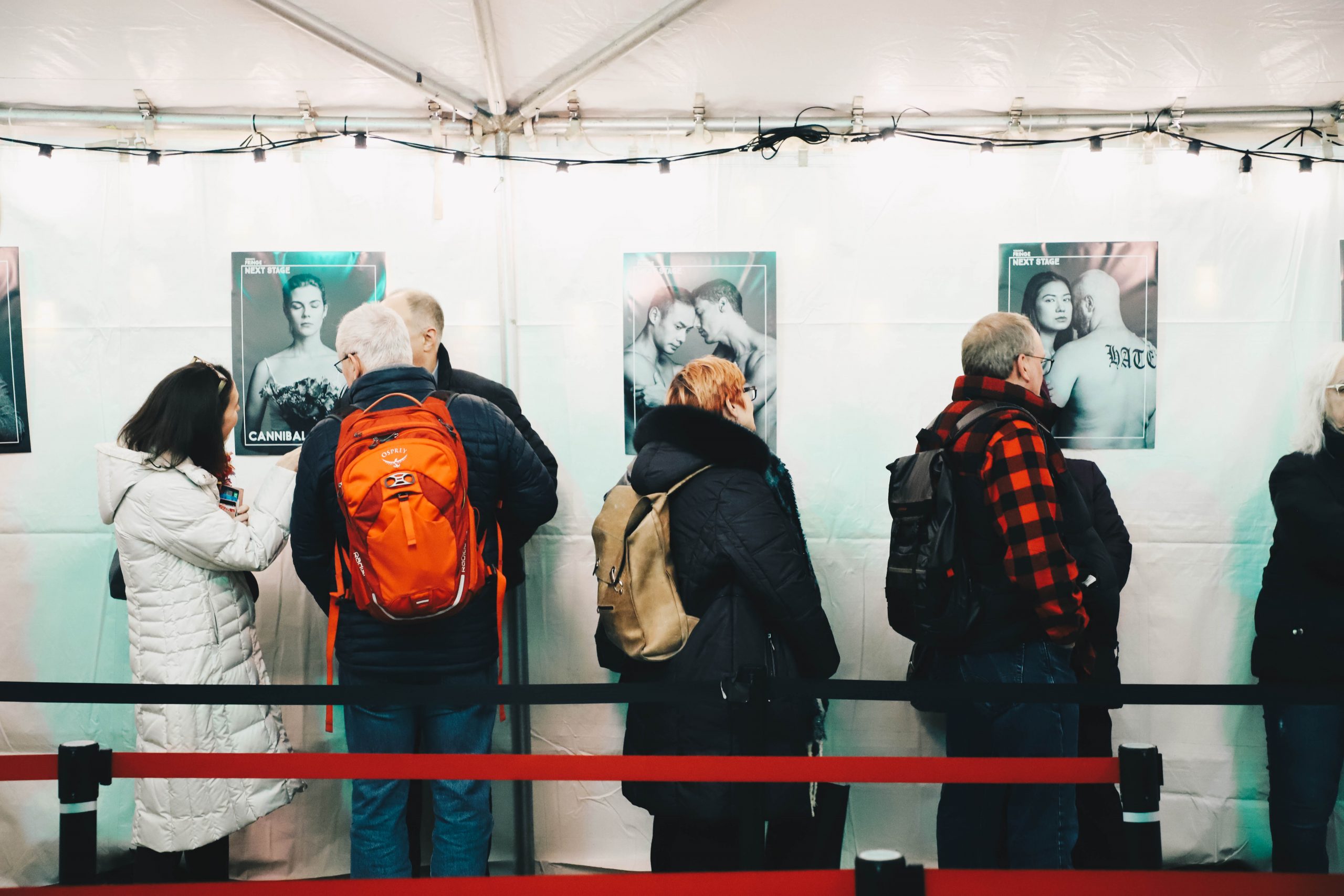

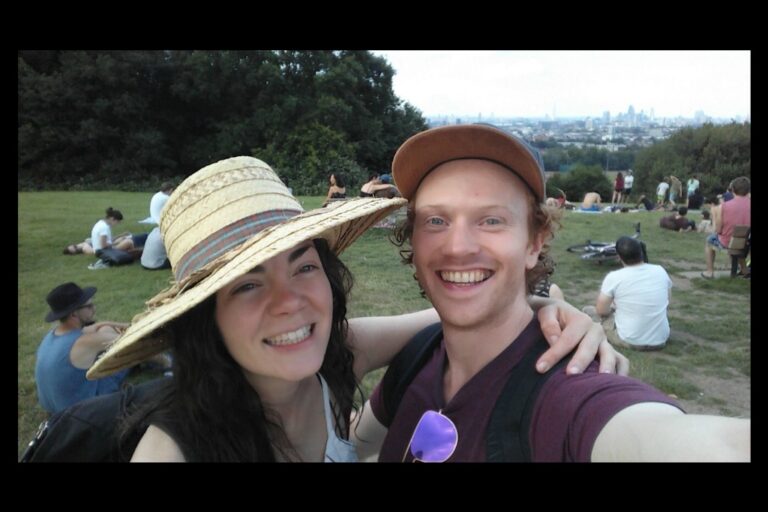
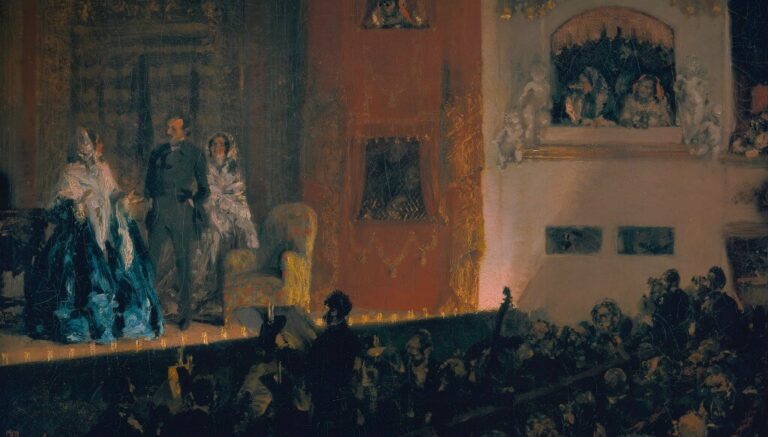
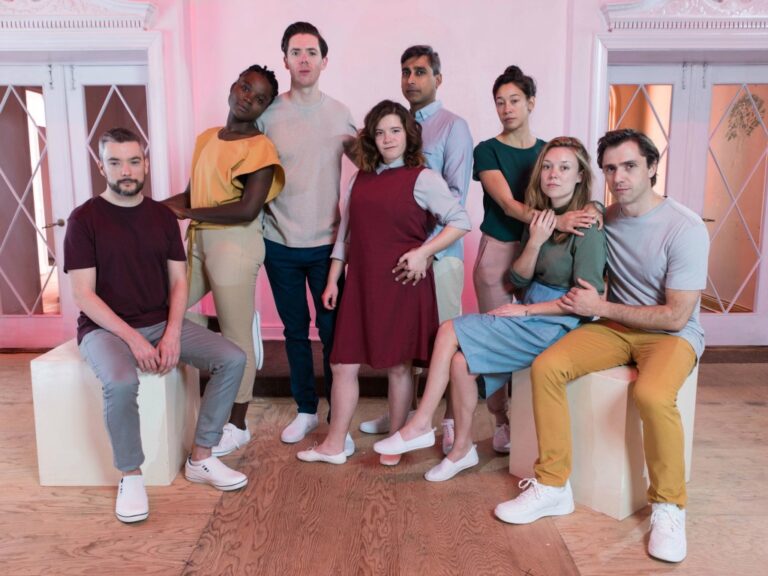
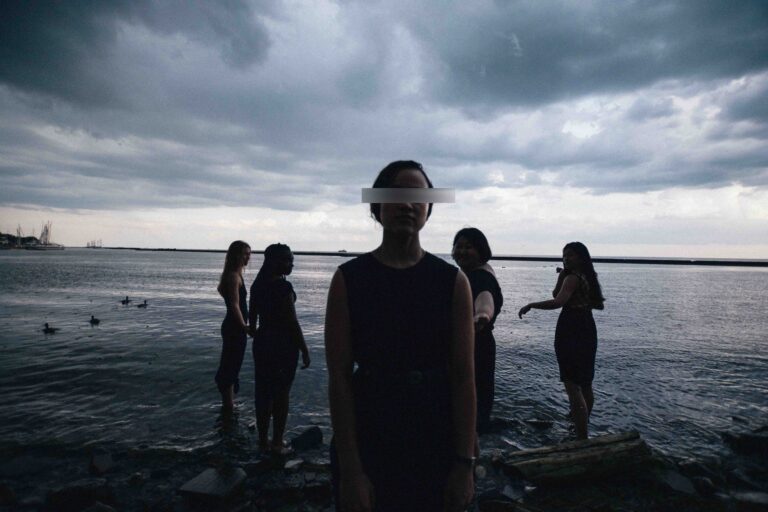
Comments